新课标人教版必修1 unit4 Earthquake Language points课件
文档属性
| 名称 | 新课标人教版必修1 unit4 Earthquake Language points课件 | 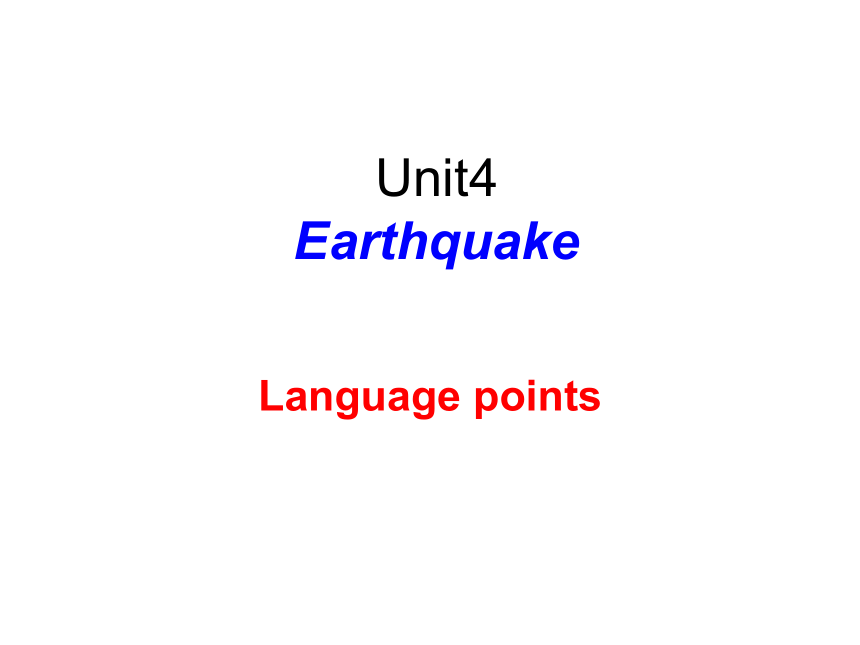 | |
| 格式 | rar | ||
| 文件大小 | 182.2KB | ||
| 资源类型 | 教案 | ||
| 版本资源 | 人教版(新课程标准) | ||
| 科目 | 英语 | ||
| 更新时间 | 2011-08-20 10:02:30 | ||
图片预览

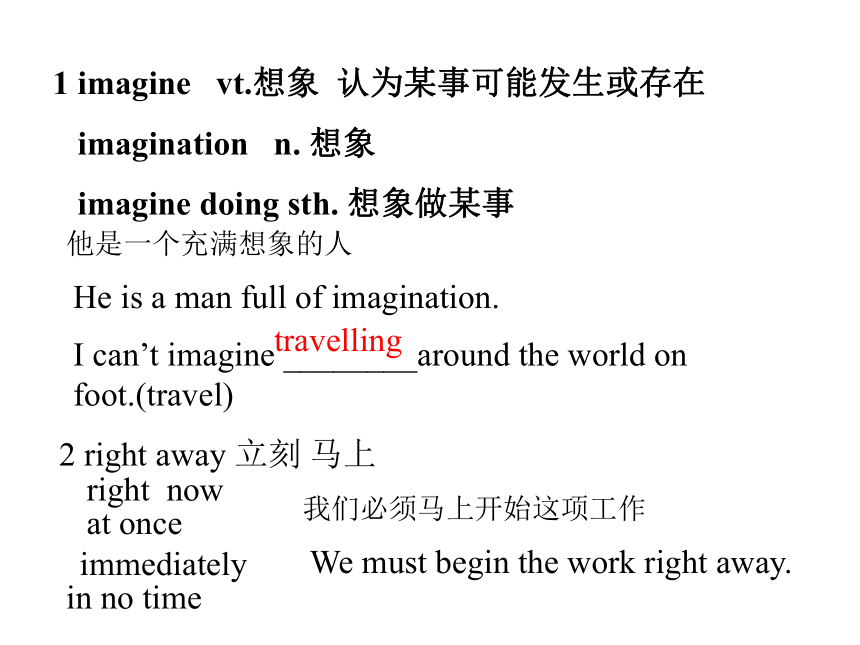
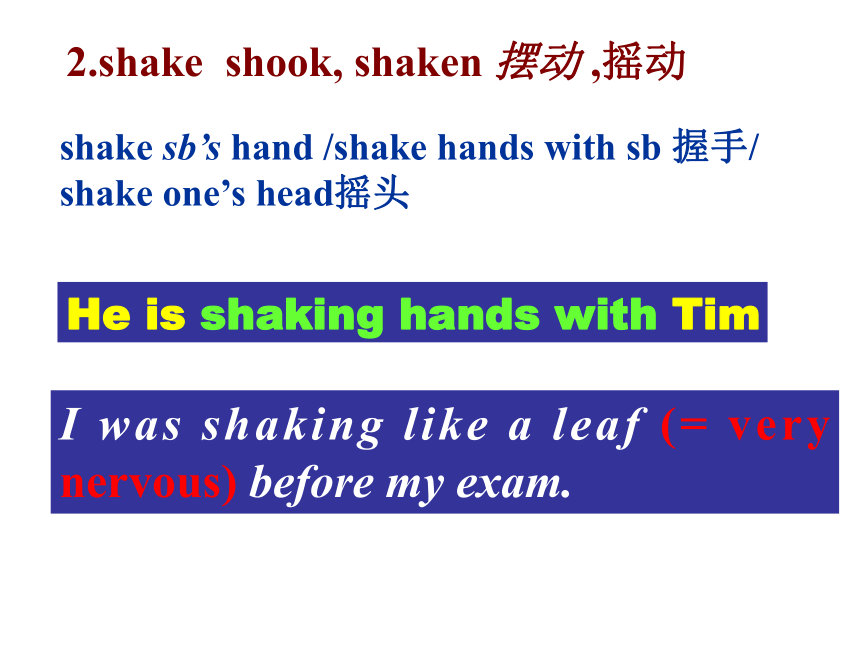
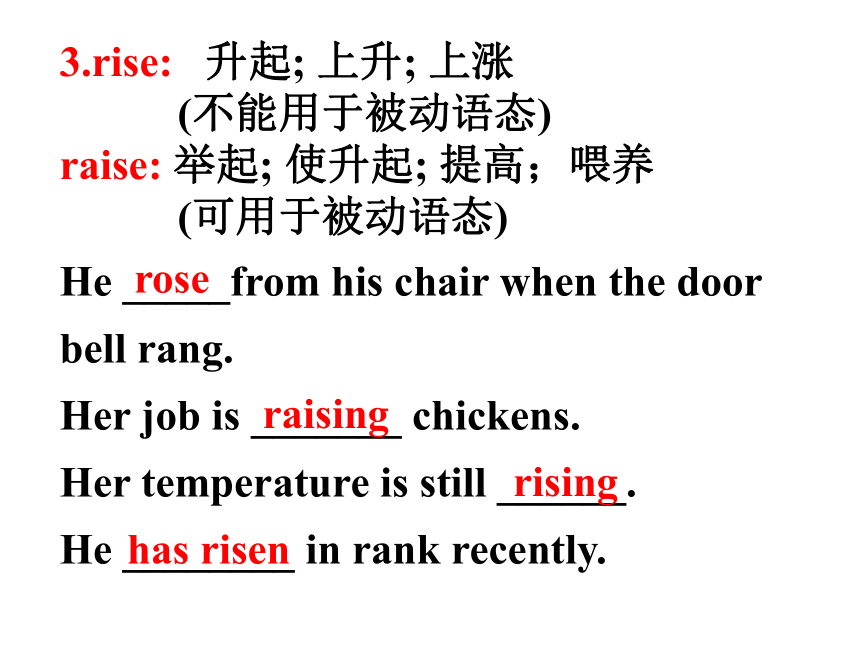
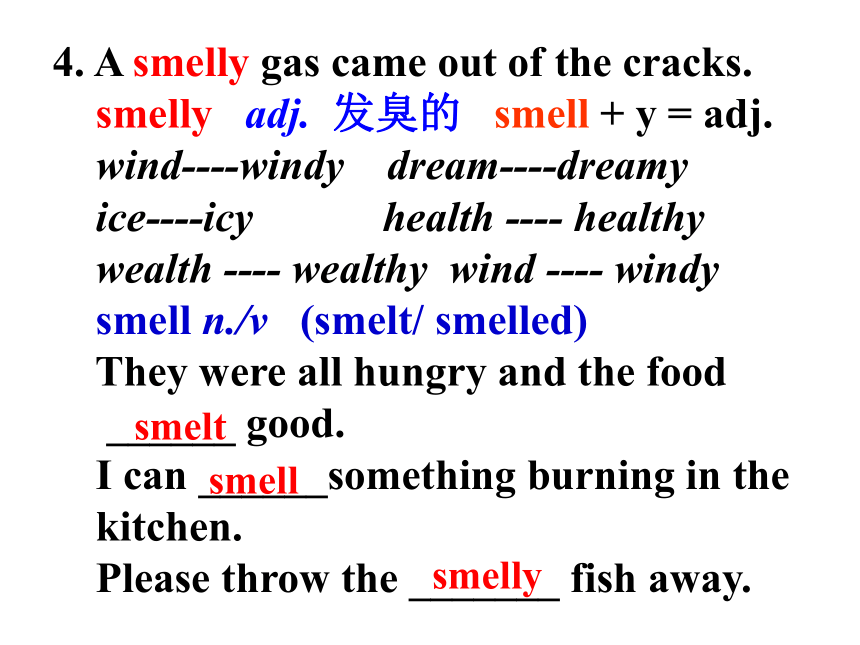
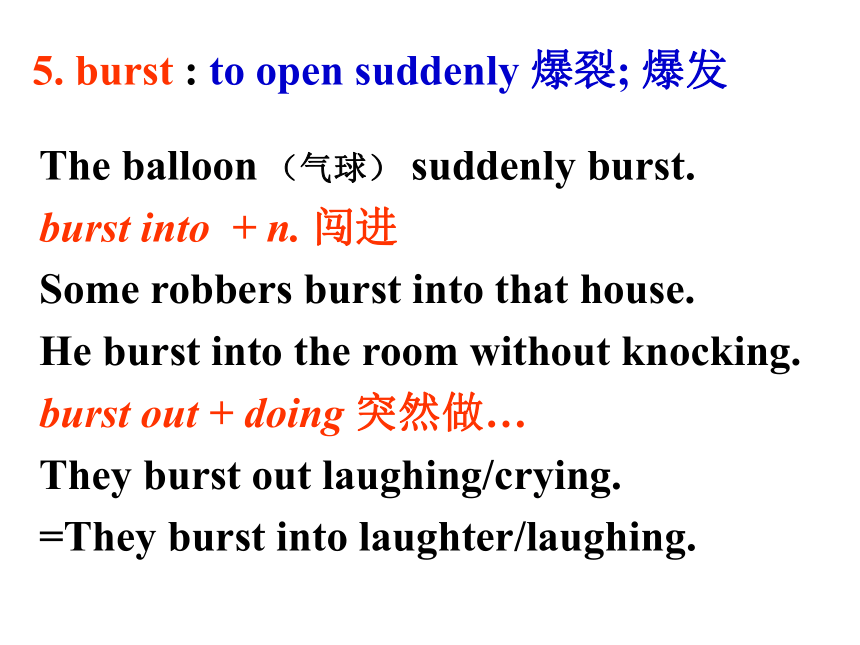
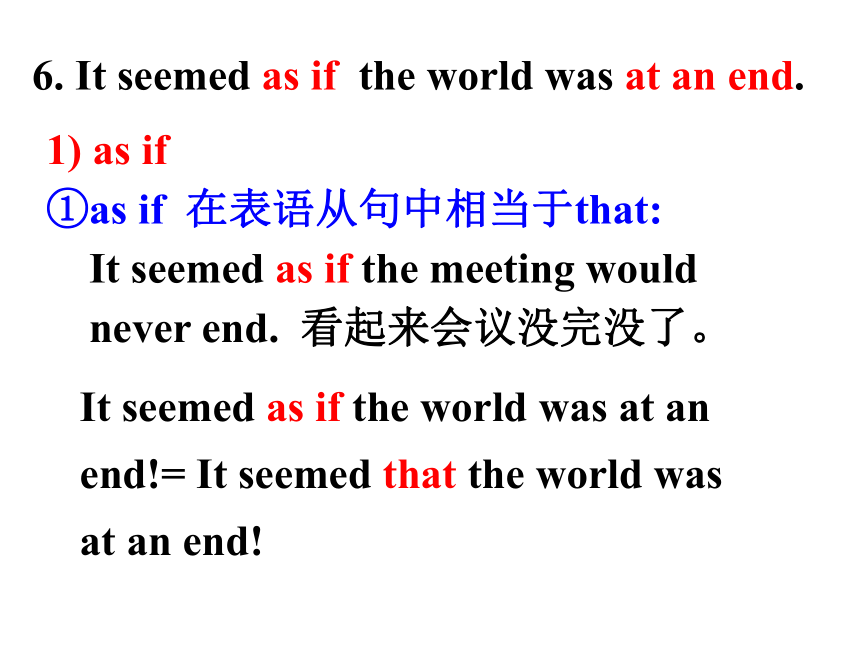
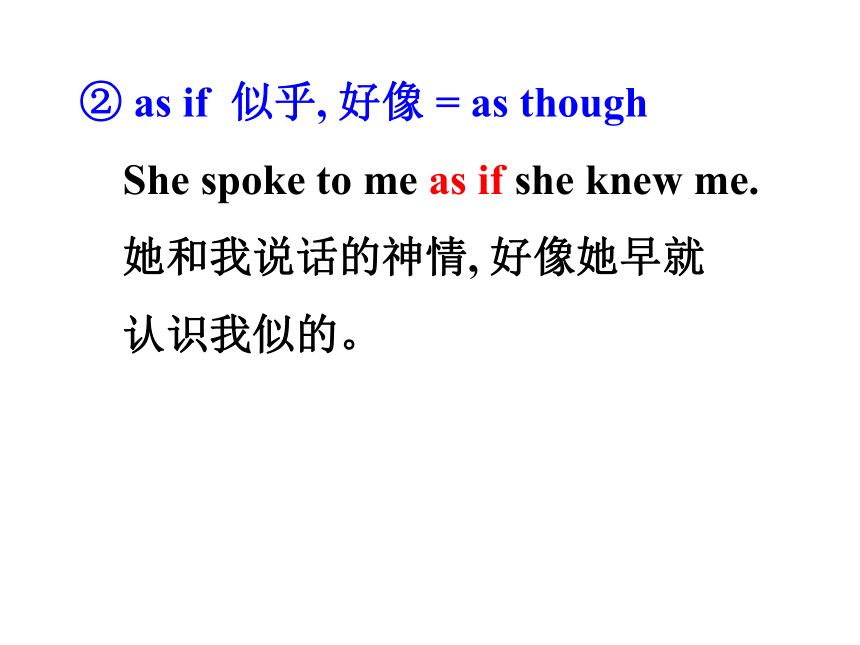
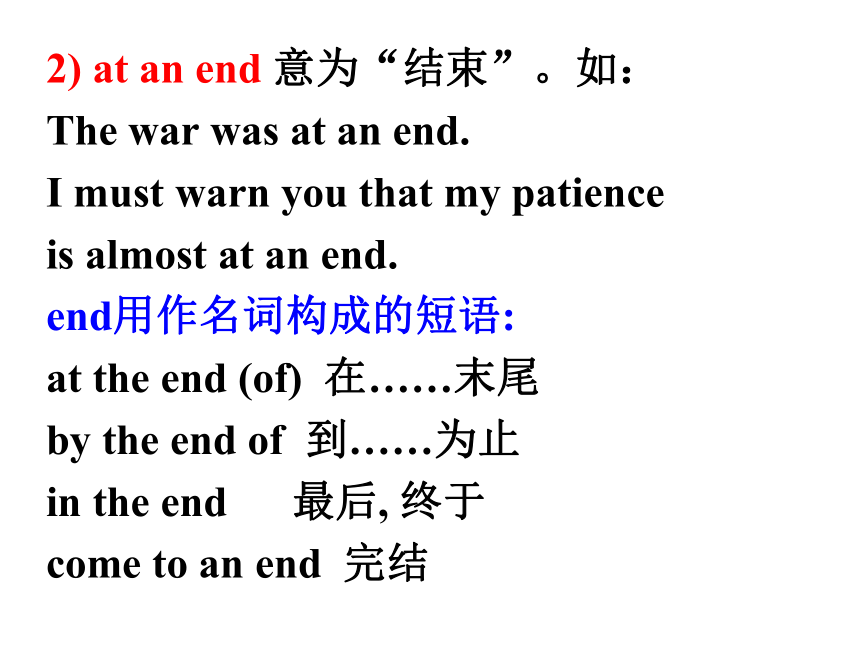
文档简介
(共20张PPT)
Unit4
Earthquake
Language points
1 imagine vt.想象 认为某事可能发生或存在
imagination n. 想象
imagine doing sth. 想象做某事
他是一个充满想象的人
He is a man full of imagination.
I can’t imagine ________around the world on foot.(travel)
travelling
2 right away 立刻 马上
at once
immediately
我们必须马上开始这项工作
We must begin the work right away.
right now
in no time
shake sb’s hand /shake hands with sb 握手/ shake one’s head摇头
2.shake shook, shaken 摆动 ,摇动
I was shaking like a leaf (= very nervous) before my exam.
He is shaking hands with Tim
3.rise: 升起; 上升; 上涨
(不能用于被动语态)
raise: 举起; 使升起; 提高;喂养
(可用于被动语态)
He _____from his chair when the door
bell rang.
Her job is _______ chickens.
Her temperature is still ______.
He ________ in rank recently.
rose
raising
rising
has risen
4. A smelly gas came out of the cracks.
smelly adj. 发臭的 smell + y = adj.
wind----windy dream----dreamy
ice----icy health ---- healthy
wealth ---- wealthy wind ---- windy
smell n./v (smelt/ smelled)
They were all hungry and the food
______ good.
I can ______something burning in the
kitchen.
Please throw the _______ fish away.
smelt
smell
smelly
The balloon (气球) suddenly burst.
burst into + n. 闯进
Some robbers burst into that house.
He burst into the room without knocking.
burst out + doing 突然做…
They burst out laughing/crying.
=They burst into laughter/laughing.
5. burst : to open suddenly 爆裂; 爆发
6. It seemed as if the world was at an end.
1) as if
as if 在表语从句中相当于that:
It seemed as if the meeting would
never end. 看起来会议没完没了。
It seemed as if the world was at an end!= It seemed that the world was
at an end!
as if 似乎, 好像 = as though
She spoke to me as if she knew me.
她和我说话的神情, 好像她早就
认识我似的。
2) at an end 意为“结束”。如:
The war was at an end.
I must warn you that my patience
is almost at an end.
end用作名词构成的短语:
at the end (of) 在……末尾
by the end of 到……为止
in the end 最后, 终于
come to an end 完结
用end构成的短语填空。
The cold weather at last stopped
____________ March.
Our hunt for a cheaper but larger
house is at last ________.
If you go on with work, you’ll succeed
_________.
How many English words had you
learned ____________ last term
at the end of
at an end
in the end
by the end of
He was in hospital for six months, he felt as if he was ____from the outside world A cut out B cut off C cut up D cut through
【解析】cut out切掉, 裁剪出, 取代, 停止; cut off 切断;cut up 切碎;cut through 刺穿。根据句意,应该选B.意思是:好像和外面的世界切断了联系。
7. In fifteen terrible seconds a large
city lay in ruins.
ruin 在此为名词, 意为“废墟”,
常和介词in搭配, in ruins意为“成废
墟, 垮掉, 毁灭”。如:
This earthquake left the whole
town in ruins.
His future is/lies in ruins.
ruin用作名词, 构成的常见短语有:
be on the road to ruin 正在走向毁灭、
be the ruin of 使……破产、身体垮掉、
名誉扫地
be/lie in ruins 变成废墟
go to ruin = fall into ruin 衰落, 败落 如:
The company cannot pay its bills and is
on the road to ruin.
Drinking was the ruin of him.
He had let the farm go to ruin.
ruin还可作动词, 意为“毁坏, 毁掉”,
ruined作形容词时, 只用在名词前,
意为“毁坏的, 破败不堪的”。如:
This illness has ruined his life.
The rain ruined my painting.
When we got there, we saw a ruined
castle.
8. Some of the rescue workers and
doctors were trapped under the ruins.
trap 1) 做动词
困住, 使陷于困境 如:
Dozens of people were trapped in
the building when the fire took place.
There’s no way out! We’re trapped!
Julia felt trapped in her role of wife
and mother.
诱骗, 诱使(trap sb into doing sth)”;
夹住, 压扁; 把……储存 如:
I was trapped into telling a lie.
Take care not to trap your fingers
in the door.
How can you trap the sun’s heat
2) trap还可作名词, 意为“圈套; 陷阱;
计谋”, 构成的常见短语有:
set a trap 设置陷阱
fall/walk into a trap 落入圈套
不是所有希望都破灭了。
all…not … = not all该句为部分否定
★表示全部肯定的表达:
all, both, everyone, everybody, everything以及“every+名词”;
★表示全部否定:
no one, none, nobody, nothing, not…any, 已以及“no+名词”
★但当not出现在含有表示全部肯定的不定代词的句子中,不管not在什么位置,都表示部分否定。
9. All hope was not lost.
= Not all hope was lost.
①不是所有的孩子都被留下了。
②不是所有的孩子都吵闹。
Not all the children are left.
(= Only some of them left early.)
Not all the children are noisy.
(= Some of the children are not noisy.)
10. The army organized teams to dig out
those who were trapped and to bury the
dead.
dig out 挖掘; 发现
bury : A. to place in the ground
B. to occupy (oneself) with deep
concentration; absorb使沉浸 或专心于
The dog buried the bone in the ground.
I buried myself in my studies.
bury oneself in= be buried in
埋头于、专心于
be buried in thought 出神深思
bury oneself in study 埋头研究
Unit4
Earthquake
Language points
1 imagine vt.想象 认为某事可能发生或存在
imagination n. 想象
imagine doing sth. 想象做某事
他是一个充满想象的人
He is a man full of imagination.
I can’t imagine ________around the world on foot.(travel)
travelling
2 right away 立刻 马上
at once
immediately
我们必须马上开始这项工作
We must begin the work right away.
right now
in no time
shake sb’s hand /shake hands with sb 握手/ shake one’s head摇头
2.shake shook, shaken 摆动 ,摇动
I was shaking like a leaf (= very nervous) before my exam.
He is shaking hands with Tim
3.rise: 升起; 上升; 上涨
(不能用于被动语态)
raise: 举起; 使升起; 提高;喂养
(可用于被动语态)
He _____from his chair when the door
bell rang.
Her job is _______ chickens.
Her temperature is still ______.
He ________ in rank recently.
rose
raising
rising
has risen
4. A smelly gas came out of the cracks.
smelly adj. 发臭的 smell + y = adj.
wind----windy dream----dreamy
ice----icy health ---- healthy
wealth ---- wealthy wind ---- windy
smell n./v (smelt/ smelled)
They were all hungry and the food
______ good.
I can ______something burning in the
kitchen.
Please throw the _______ fish away.
smelt
smell
smelly
The balloon (气球) suddenly burst.
burst into + n. 闯进
Some robbers burst into that house.
He burst into the room without knocking.
burst out + doing 突然做…
They burst out laughing/crying.
=They burst into laughter/laughing.
5. burst : to open suddenly 爆裂; 爆发
6. It seemed as if the world was at an end.
1) as if
as if 在表语从句中相当于that:
It seemed as if the meeting would
never end. 看起来会议没完没了。
It seemed as if the world was at an end!= It seemed that the world was
at an end!
as if 似乎, 好像 = as though
She spoke to me as if she knew me.
她和我说话的神情, 好像她早就
认识我似的。
2) at an end 意为“结束”。如:
The war was at an end.
I must warn you that my patience
is almost at an end.
end用作名词构成的短语:
at the end (of) 在……末尾
by the end of 到……为止
in the end 最后, 终于
come to an end 完结
用end构成的短语填空。
The cold weather at last stopped
____________ March.
Our hunt for a cheaper but larger
house is at last ________.
If you go on with work, you’ll succeed
_________.
How many English words had you
learned ____________ last term
at the end of
at an end
in the end
by the end of
He was in hospital for six months, he felt as if he was ____from the outside world A cut out B cut off C cut up D cut through
【解析】cut out切掉, 裁剪出, 取代, 停止; cut off 切断;cut up 切碎;cut through 刺穿。根据句意,应该选B.意思是:好像和外面的世界切断了联系。
7. In fifteen terrible seconds a large
city lay in ruins.
ruin 在此为名词, 意为“废墟”,
常和介词in搭配, in ruins意为“成废
墟, 垮掉, 毁灭”。如:
This earthquake left the whole
town in ruins.
His future is/lies in ruins.
ruin用作名词, 构成的常见短语有:
be on the road to ruin 正在走向毁灭、
be the ruin of 使……破产、身体垮掉、
名誉扫地
be/lie in ruins 变成废墟
go to ruin = fall into ruin 衰落, 败落 如:
The company cannot pay its bills and is
on the road to ruin.
Drinking was the ruin of him.
He had let the farm go to ruin.
ruin还可作动词, 意为“毁坏, 毁掉”,
ruined作形容词时, 只用在名词前,
意为“毁坏的, 破败不堪的”。如:
This illness has ruined his life.
The rain ruined my painting.
When we got there, we saw a ruined
castle.
8. Some of the rescue workers and
doctors were trapped under the ruins.
trap 1) 做动词
困住, 使陷于困境 如:
Dozens of people were trapped in
the building when the fire took place.
There’s no way out! We’re trapped!
Julia felt trapped in her role of wife
and mother.
诱骗, 诱使(trap sb into doing sth)”;
夹住, 压扁; 把……储存 如:
I was trapped into telling a lie.
Take care not to trap your fingers
in the door.
How can you trap the sun’s heat
2) trap还可作名词, 意为“圈套; 陷阱;
计谋”, 构成的常见短语有:
set a trap 设置陷阱
fall/walk into a trap 落入圈套
不是所有希望都破灭了。
all…not … = not all该句为部分否定
★表示全部肯定的表达:
all, both, everyone, everybody, everything以及“every+名词”;
★表示全部否定:
no one, none, nobody, nothing, not…any, 已以及“no+名词”
★但当not出现在含有表示全部肯定的不定代词的句子中,不管not在什么位置,都表示部分否定。
9. All hope was not lost.
= Not all hope was lost.
①不是所有的孩子都被留下了。
②不是所有的孩子都吵闹。
Not all the children are left.
(= Only some of them left early.)
Not all the children are noisy.
(= Some of the children are not noisy.)
10. The army organized teams to dig out
those who were trapped and to bury the
dead.
dig out 挖掘; 发现
bury : A. to place in the ground
B. to occupy (oneself) with deep
concentration; absorb使沉浸 或专心于
The dog buried the bone in the ground.
I buried myself in my studies.
bury oneself in= be buried in
埋头于、专心于
be buried in thought 出神深思
bury oneself in study 埋头研究
